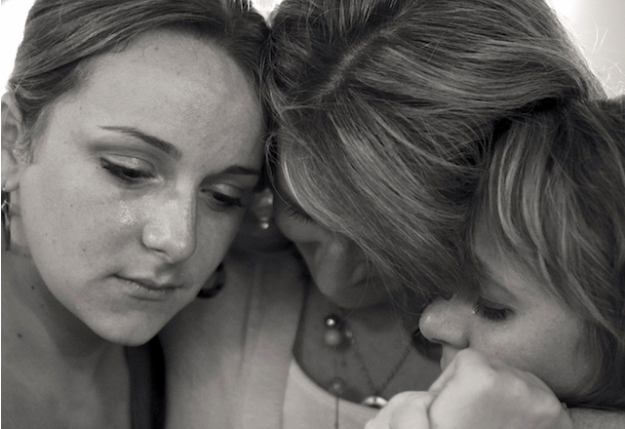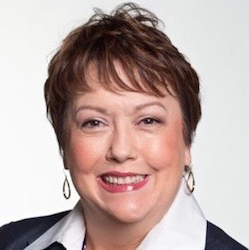When Silence Becomes Lethal
Some months ago, I was counseling with a young woman suffering from emotional turmoil over a previous abortion. While we talked, I asked about her parents, whom she said had divorced when she was very young.
Raised by her mother, a career woman and staunchly pro-choice, she encouraged her daughter to abort once she learned she was pregnant.
Photo for illustration: Daniela Vladimirova / Flickr
I asked if she had ever told anyone she had had an abortion, to which she replied, “Only my mother knew, and she told me right after the abortion never to tell anyone.” Being a loving and obedient daughter, she did just that … never telling a soul. Now 13 years later, two husbands and three psychotherapists later, this young woman sat before me an emotional wreck. That’s when silence becomes lethal.
Silence is a killer. Ask any counselor and they will confirm it. Silence inhibits a person seeing and learning the truth about themselves and their interactions in society. We humans were created as emotional creatures with the need for human interaction, which is vital to process our feelings and thought processes. Remaining silent stifles that basic need.
As a lay counselor in post-abortion ministry in North Texas, I witness every week what silence does to those with a past abortion decision (the “post-abortive”). So afraid of being judged or condemned by others for their decision, the post-abortive silently encapsulate themselves from the world—thinking they are protecting themselves. Unfortunately, the exact opposite occurs, resulting in slow destruction from shame and guilt.
Photo for illustration: Sanofi Pasteur / Flickr
Some dig deeper into their pain, refusing to consider their past decision has any correlation with the agony they are experiencing. The inner turmoil, never addressed, can be agonizing. To many left behind living with the decision, symptoms of Post Abortion Stress start to appear.
This puts women and men at higher risk for developing a range of mental health problems, including depression, loss of self-esteem, self-destructive behavior, self-hatred, drug and alcohol abuse, sleep disorders, memory loss, sexual dysfunction, chronic problems with relationships, dramatic personality changes, anxiety attacks, guilt and remorse, difficulty grieving, increased tendency toward violence, chronic crying, difficulty concentrating, flashbacks, loss of interest in previously enjoyed activities and people, and difficulty bonding with later children. It is not uncommon that symptoms lay dormant until later in life, with many carrying their secret silently to their grave.
“The psychological and spiritual agony of abortion is silenced by society, ignored by the media, rebuffed by mental health professionals, and scorned by the women’s movement. Post-abortion trauma is a serious and devastating illness which has no celebrity spokeswoman, no made-for-television movie, and no platform for the talk show confessional,” says Theresa Burke, the founder of Rachel’s Vineyard, a ministry that helps men and women find healing after abortion.
Speaking from her own experience she regrets, Debby Efurd counsels post-abortive women (Photo Courtesy of Author)
But there are other and bigger problems with remaining silent. Silence on the subject of abortion has helped perpetuate an American Holocaust for the estimated 60,000,000 (yes, million) babies aborted in the United States since 1973. As citizens in a civil society, we are each called to voice protest to injustice of any kind. Remaining silent about this American Holocaust can be deemed tacit approval of these acts.
You may think that staying silent keeps you from being involved in any conflict, but it’s quite the opposite. Silence is as much an active form of communication as talking. Many stay silent because they don’t want to do any harm by offending or criticizing someone—they want to be “politically correct.”
But when the injustice of abortion is allowed to continue for over a million women in this country every year, remaining silent perpetuates the evil. It allows future harm not only to the victims, but families, friends, communities and society.
The legislative chaos I witnessed in the Texas State Capitol in 2013 when the pro-life bill HB 2 was being fought over and ultimately passed turned the tide for me. All eyes were on Austin, Texas that summer. It was during that experience when I realized silence helps no one. I drew a line in the sand, stepped across and vowed to never be silenced again.
At the Texas Capitol on July 12, 2013, young women pray during the vote for pro-life law HB 2 (Photo: Beth Wilson / Flickr)
I believe Christians have a fundamental duty to work within the governmental/political system to limit evil and promote good. Shouldn’t social justice start in the womb? Here are but a few actions each of us can take:
Pray fervently for the ending of abortion in this country.
Pray specifically for the U.S. Supreme Court and those justices hearing upcoming cases (the first being on March 2, the case Whole Woman’s Health v. Hellerstedt).
Learn the truth about what happens during and after an abortion.
Share what you learn and act on it.
Become a listening ear to someone you know who has experienced the pain of abortion and point them to an abortion recovery ministry locally.
Become active in your local, state and federal election process and learn about the candidates, including from such groups as Susan B. Anthony List.
Cast your ballot at primaries, caucuses and general elections for pro-life candidates who have proven records. Remember, you are voting for the character of the candidate—not party politics, words or promises made.
I’ve said it before, but I’ll say it again: prayer is the most powerful and vital tool available to us.
Speak up first in prayer and then in the public square, urges Debby Efurd (Photo: Geoff Meyer / Flickr)
In the nineteenth century, many remained silent about the horrors of slavery—until someone spoke up. In the twentieth century, many remained silent about the horrors of Nazism—until nations spoke out. Now, in the twenty-first century, many remain silent about the horrors of abortion—and, sadly, many Americans still sit idly by while the killing continues.
An incontrovertible fact remains. Whenever any of us sit passively silent about abortion, we are affirming what the media proclaims, what our government has condoned and what our culture believes: the child in the womb is less valuable than the rest of us.
In a representative democracy, we the people are responsible for which leaders we elect. I encourage you to pray, speak out and cast an informed vote—with a primary focus on the candidates’ real, tangible steps toward ending the injustice of abortion.
About Debby Efurd
Debby Efurd serves as president of Dallas-based Initiative 180 and its program of recovery, Peace After the Storm. She earned a bachelor’s degree in counseling from Dallas Baptist University. Debby is the author of Go Tell It! (which released in 2015) and a blogger for Bound4LIFE International, a grassroots movement to pray for the ending of abortion, carry the spirit of adoption, and believe for revival and reformation.






